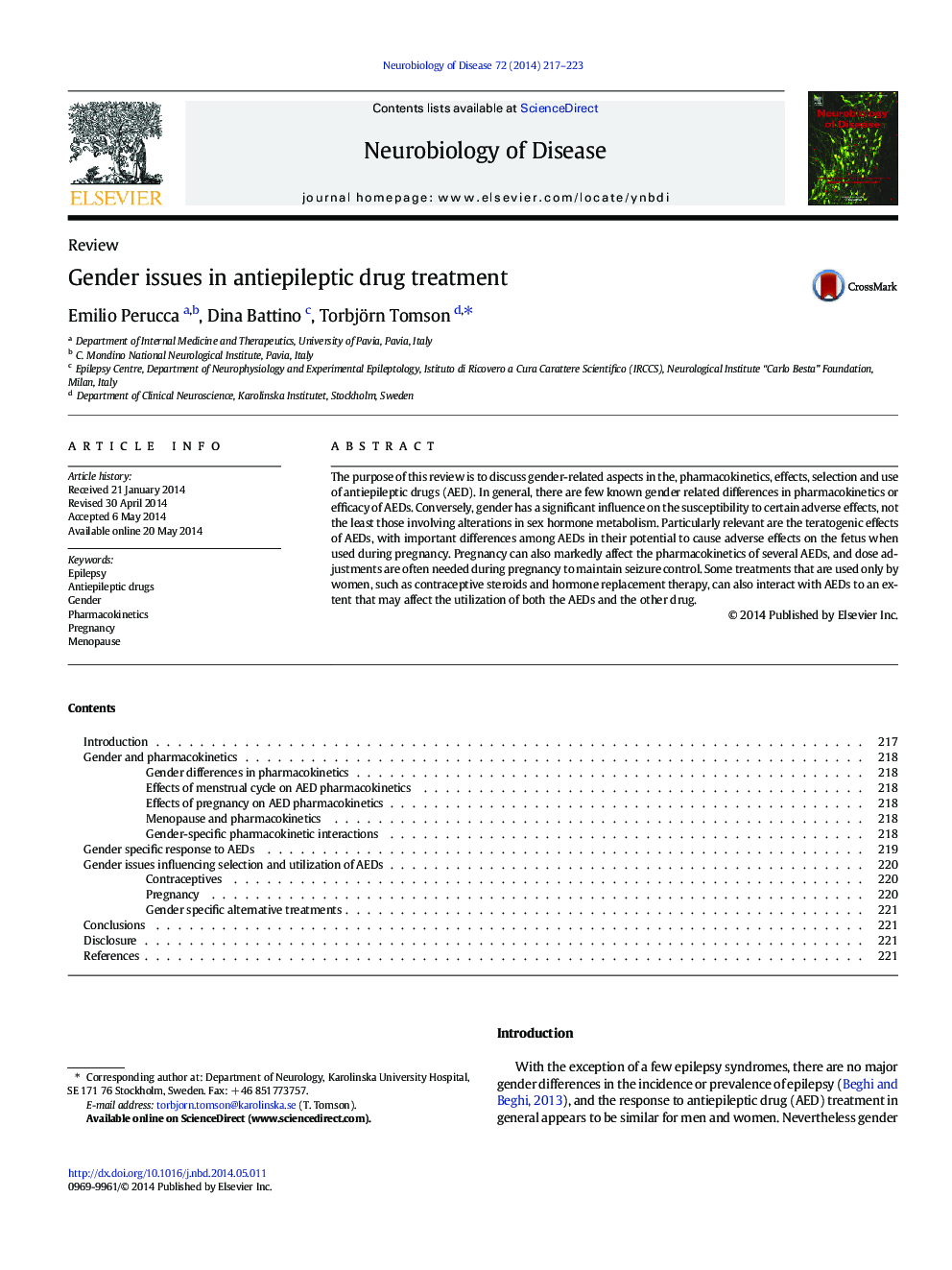| Article ID | Journal | Published Year | Pages | File Type |
|---|---|---|---|---|
| 3069329 | Neurobiology of Disease | 2014 | 7 Pages |
•Adverse drug effects involving sex hormone metabolism are gender specific.•Differences in teratogenic risk affect selection of antiepileptic drugs for women.•Pregnancy can affect significantly serum concentrations of antiepileptic drugs.•Interactions between contraceptive steroids and antiepileptic drugs are important.
The purpose of this review is to discuss gender-related aspects in the, pharmacokinetics, effects, selection and use of antiepileptic drugs (AED). In general, there are few known gender related differences in pharmacokinetics or efficacy of AEDs. Conversely, gender has a significant influence on the susceptibility to certain adverse effects, not the least those involving alterations in sex hormone metabolism. Particularly relevant are the teratogenic effects of AEDs, with important differences among AEDs in their potential to cause adverse effects on the fetus when used during pregnancy. Pregnancy can also markedly affect the pharmacokinetics of several AEDs, and dose adjustments are often needed during pregnancy to maintain seizure control. Some treatments that are used only by women, such as contraceptive steroids and hormone replacement therapy, can also interact with AEDs to an extent that may affect the utilization of both the AEDs and the other drug.
